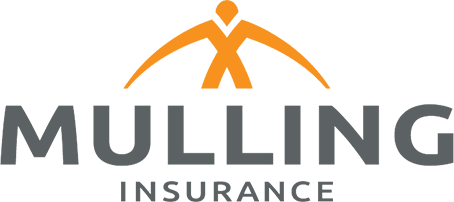November 17-23 is International Fraud Awareness Week. Once a year, the Association of Certified Fraud Examiners (ACFE) organizes a week to highlight the far-reaching consequences of fraud, educate business owners, and raise anti-fraud awareness.
How does fraud apply to the insurance industry and affect you, your insurance premiums, and your coverage? Let’s dive into Florida insurance fraud and some fundamentals of fraud prevention.
What is Fraud?
Fraud is an attempt to deceive for financial or personal gain, causing organizations to lose 5% of revenue annually. This definition covers a wide range of criminal behavior, including common types of fraud like identity theft, occupational fraud, and insurance fraud.
A common misconception is that fraud is a victimless crime. While victims of fraud don't experience physical damage, people’s livelihoods, a company’s reputation, and customers of defrauded companies are all affected.
Florida Insurance Fraud
Florida in particular has suffered heavily from fraud over the last 20 years. Even if you don’t live in Florida, you’ve probably heard about the large number of scams and fraud activity.
The FBI estimates that, excluding health insurance, insurance fraud costs an estimated $40 billion annually. The unique thing about insurance fraud is that insurers have a way to pass their losses onto the customer. They can raise premiums! Because of this, it’s estimated that insurance fraud losses cost the average American family $400 to $700 a year.
Types of Insurance Fraud
Homeowners Insurance Fraud
Homeowners insurance fraud in Florida has become such a problem that several large national insurance providers have pulled back coverage or stopped covering homes in the state entirely. You can read more about it in our Homeowners Insurance & the Florida Crisis blog.
One thing is for sure. Between Florida’s history with catastrophic storms, a plethora of fraudulent claims and scams, and legislation favoring suspect litigation, insurance companies are facing problems, and homeowners are bearing the brunt of the impact. This is a complex problem with no clear solution. Past reform aimed to lower premiums, but a recent shift to focus on stabilizing the market will take time according to Florida lawmakers.
State-run Citizens Property Insurance has been a long-time provider of lower-cost homeowners insurance policies, but even that could change. Board members are considering an average increase of 14% for all Personal Lines policies for 2025.
Auto Insurance Fraud
Auto insurance fraud is usually categorized into two categories: soft and hard fraud. Soft fraud takes advantage of a situation a fraudster finds themselves in. This can look like exaggerating the damages done in an accident or lying on an insurance application to get a lower premium. The cost of these “lost premiums” gets passed onto policyholders and it’s estimated that up to 14% of customers' premiums go toward paying for losses due to fraud.
Hard fraud is intentionally creating an accident or crime to file an insurance claim. Whether that looks like cutting someone off and slamming on the brakes to cause a crash or lying about your car being stolen, it is illegal. Both forms of insurance fraud scams are particularly prevalent in Florida.
Tips for Preventing Insurance Fraud
With all of this happening within Florida, you're probably asking yourself: how can I protect myself from fraud and the effects of it? Here are a few tips to help you avoid fraud:
- Purchase your policy through a licensed insurance agent or insurance company. If you feel like you're experiencing fraud, you can rely on your trusted insurance team and agents to verify any changes to your policy.
- If you're having work done on your home, double-check that your contractor is in good standing and licensed. You can verify this at: www.myfloridalicense.com
- If you feel as though someone is staging an auto accident to file a claim for repairs, retrieve as much information from the other driver as possible and contact both law enforcement and your insurance company about the potential fraud. Before you do so, be sure you have all the details that corroborate your suspicion!
For more tips on how to avoid fraud, visit MyFloridaCFO.com or Fraudweek.com.
Fraud doesn’t just hurt big companies—it impacts families and businesses across Florida by driving up premiums and limiting coverage options. Taking steps to understand and prevent fraud is key to protecting yourself and your finances. If you have questions about your coverage or how to guard against fraud, the Mulling Insurance team is here to help. Talk to an agent today—we’re always happy to provide straightforward advice and personalized support.
 Kevin Mulling, CIC | Vice President
Kevin Mulling, CIC | Vice President
As Vice President of Mulling Insurance, Kevin uses his decades of insurance industry experience and knowledge as a Certified Insurance Counselor (CIC) to help customers with their policies. He takes pride in leading his team and carrying forward the family business's strong commitment to community and family values.


